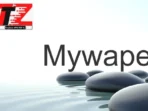If you decide to start a How to start a house cleaning business, make sure you cover all legal, protection, and record-keeping bases.
You should consider starting a house cleaning business if you’re looking for a self-employment option that allows you to choose when, where, and how much work you do. Getting started is not expensive. It leverages skills you already possess.
To get maximum benefits and protection, however, you’ll want to set up your business before you announce your availability. Find out how to get started by following these tips.
Establish a formal business entity
A business name shows you are serious about your business, not just someone who cleans today and disappears tomorrow. Additionally, you should decide on your legal business structure. Some options are:
- Owner-operator
- Corporation (S corporation)
- Corporation (LLC)
Because it is the simplest of the three, a sole proprietorship is tempting. By filing DBA–doing business as-paperwork with your county or state, you can either use your own name or formalize a business name. However, you aren’t protected. If your business gets sued or owes money, you’re personally liable.
Getting Paid as an LLC Member
According to Guy Peters, owner of MOP STARS Cleaning Service , “I find LLCs to be a good middle ground between a sole proprietorship, which provides no legal protection, and a corporation, which is too complex to maintain.
S corporations can provide tax savings, but Justin Carpenter, owner of Modern Maids, says such entities make sense only if a business earns enough revenue to justify the added compliance work and costs. He says the savings can be worthwhile at lower income levels, assuming you can justify a lower salary to the IRS.
Insurance Provides Protection
Consider the right insurance for this type of business when protecting yourself and your cleaning business. Think Safe Insurance president Greg Martin says that because business insurance is more complicated than personal protection, you should work with an agent that you trust and who knows how your business operates.
Be sure your auto policy covers business use, for instance. Martin says you’ll also need commercial general liability insurance to protect you from injury and damage caused by you or your employees.
Peters recommends buying business owner’s insurance that covers everything you can imagine may go wrong, followed by an umbrella policy.
Bookkeeping Set Up
Open a business checking account if you want to comply with tax law requirements. Personal and business finances will be kept separate and tax records will be much easier to keep.
Small business owners can simplify their bookkeeping using a variety of software programs. Honestly Simple Cleaning, LLC, owned by Heather Albrecht, relies on QuickBooks. My accountant appreciates how easy it is to easily print the reports she needs during tax time, as I’m able to keep track of my income easily year after year.
Write Terms Down
Attorney Andrew Rozo recommends that you document the tasks you have agreed to perform, even though home cleaning agreements are often informal. The written contract would minimize confusion and fights about what was agreed to. In addition, contracts establish a record of clients and jobs, which could be useful for a number of reasons.
Clearly state what you will clean, when, and how much you will charge. Protect the business by updating the agreement when your responsibilities change.
Finding clients
Albrecht recommends tapping into your network instead of Craigslist and Nextdoor. “Word of mouth is extremely important to a cleaning business. Clients feel more connected to you because they know how you’re, and you’re more comfortable being in their home,” she says.
Consult an expert
As well as consulting an insurance agent, you should consult an accountant or lawyer who understands the needs and challenges of small businesses and can give you advice on how to structure your business. You’ll likely save time and money by receiving informed input early in your business.
click here for more articles.







